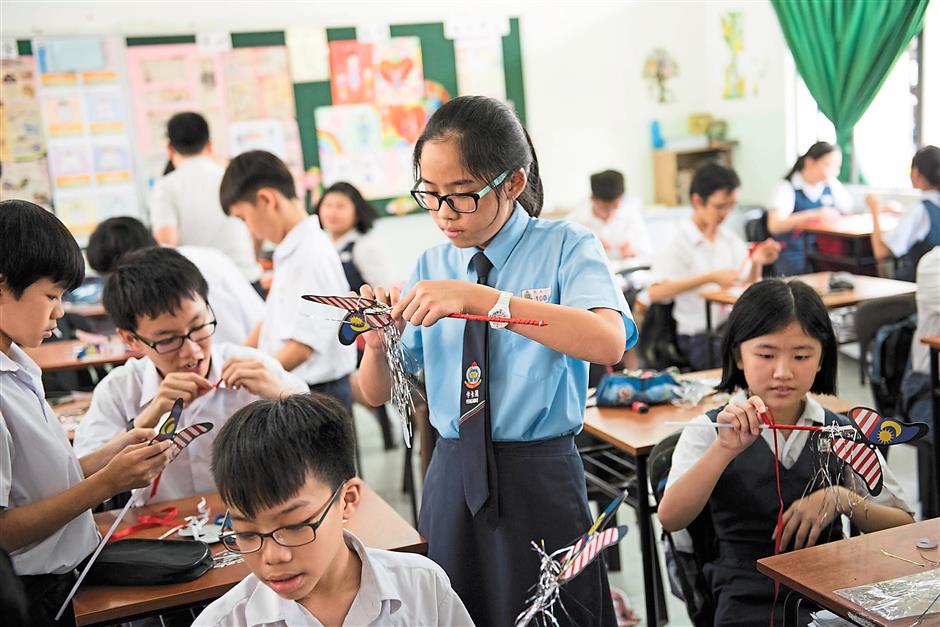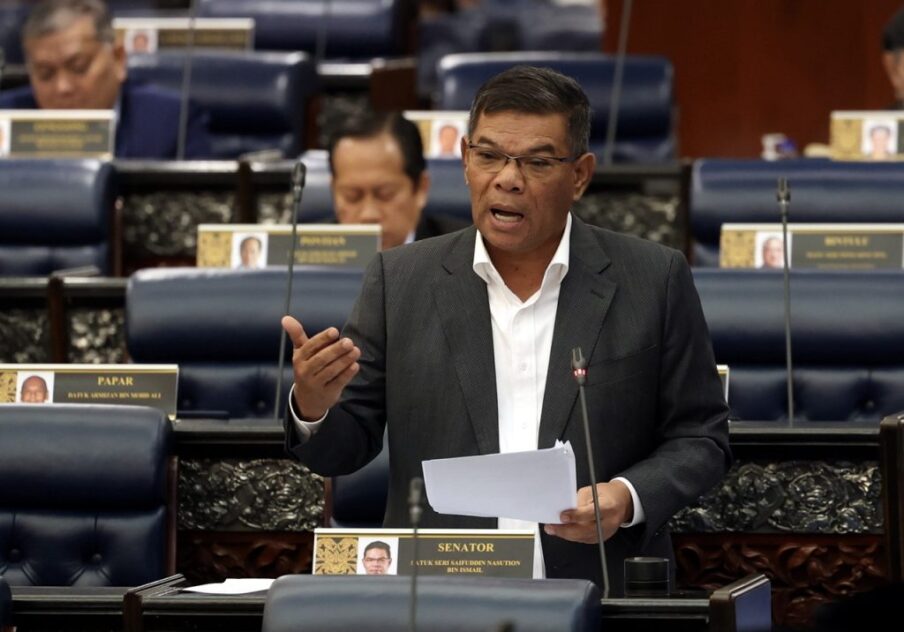MCA Youth has questioned UMNO Youth chief Dr Muhammad Akmal Saleh’s call for a single-stream education system.
According to the party’s youth wing’s secretary-general Saw Yee Fung, Akmal’s proposal suggests a policy approach that is rooted in the past that places emphasis on mobilising support through racial undertones than on developing a comprehensive education policy for a diverse Malaysia.
“While the country faces numerous challenges, UMNO Youth’s decision to raise the divisive issue of single-stream education at this critical time is unproductive and irrelevant to national progress,” Saw said in a statement today (March 7).
“To gain public trust and lead the country, leaders must stop relying on tactics that manipulate racial tensions or create divisions.
“UMNO Youth should focus its efforts on modernising their approach and avoid unproductive efforts that harm national unity.”
Saw went on to stress that some groups have filed lawsuits in court in recent years to contest the legal status of Chinese and Tamil vernacular schools.
However, all courts – from the High Court to the Court of Appeal – have consistently made rulings in favour of vernacular schools, and in the end, the Federal Court also dismissed the appeals filed by the plaintiffs, effectively upholding the appellate court’s earlier decision.
“This decision confirms that the use of Chinese and Tamil as the medium of instruction in these schools is a constitutionally protected right and does not violate the Federal Constitution,” Saw stated.
“Therefore, in this case, the status of Chinese and Tamil vernacular schools, as well as their right to use their mother tongues as the medium of instruction, should not be questioned or challenged by any party.”
Saw further noted that UMNO Youth would be better served by presenting a broader array of policy proposals aimed at bolstering the nation’s economy, strengthening the ringgit, and addressing the livelihood concerns of the people.
“Such an approach would offer the public a glimpse into UMNO Youth’s governance and policy acumen, shifting away from perpetuating its divisive narrative,” she added.
Yesterday, Utusan Malaysia reported Akmal as saying that the wing would propose a single schooling system to the government to foster harmony among the races.
Akmal said Malaysians had been segregated from a young age because of vernacular schools, and that the wing would hold a nationwide debate session on the re-establishment of single-stream schools.
Better understanding of education system

In response to Akmal’s statement, Bukit Bendera MP Syerleena Abdul Rashid called for UMNO Youth to better comprehend the country’s education system before calling for the establishment of a single-stream school system to replace vernacular schools.
Highlighting the diversity of the education system, the DAP lawmaker said it is important to understand why parents prefer sending their children to vernacular schools compared to national schools.
“I would like to suggest to UMNO Youth to first understand why vernacular schools are the choice of most parents who want quality education for their children.
“These parents include former UMNO Youth chief Datuk Asyraf Wajdi Dusuki,” she said, referring to Asyraf Wajdi’s children studying in a Chinese vernacular school.
According to Syerleena, the problem with national schools is its infrastructure where the government has to make special allocations to improve school toilets.
“Such things are almost unheard of in vernacular schools as funds are raised on their own and infrastructure problems are solved on their own,” Syerleena said in a statement.
Syerleena also cited several downsides to national schools over vernacular schools, including a lack of teaching staff leading to overcrowded classrooms and a syllabus that fails to prepare students for the real world.
In addition, she cited a lack of resources in national schools that affects the quality of a student’s educational experience.
“There is a gap in the quality of education between urban and rural areas in the national education structure that breeds a wide socio-economic gap,” she remarked. – March 7, 2024









